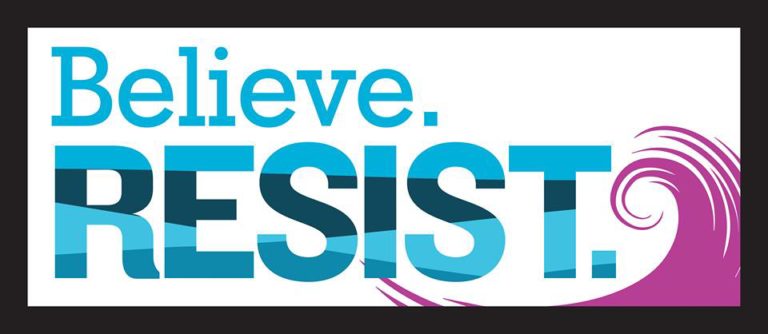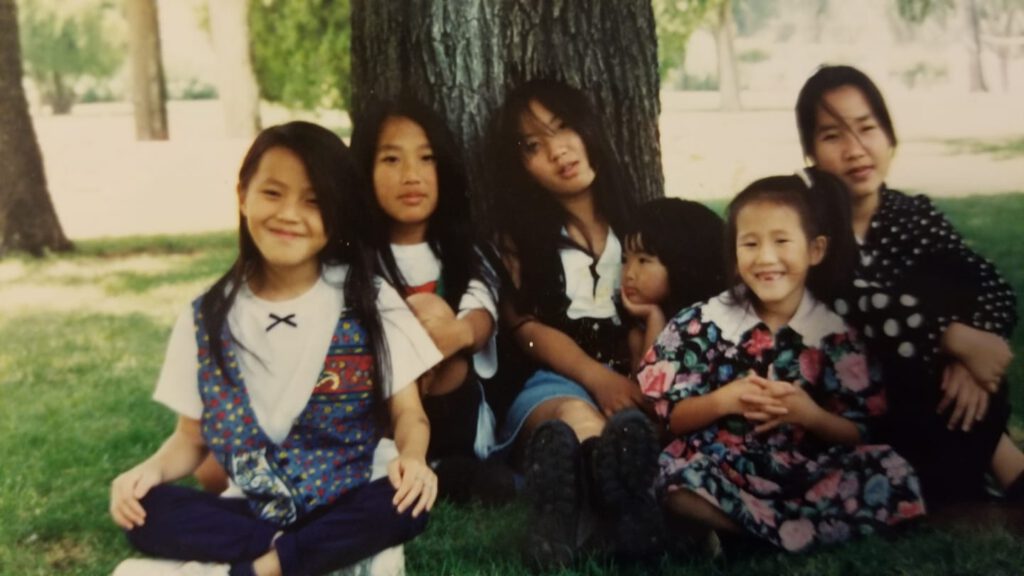Ann Coulter recently wrote that it’s not just “illegal” immigrants that are the problem, it’s legal immigrants too. She went on to single out Hmong Americans as murderers and rapists. As we witness a new, highly visible white nationalism in America, it’s important to understand that these movements desperately need a villain. These movements are not born, so much as made. They create a story with villains and a toxic atmosphere. New laws establish a clear line, determining who is and isn’t white and who is and isn’t American.
When immigrants and well-meaning communities create a value scale among the documented and undocumented – the good immigrant versus the bad immigrant – we play directly into the hands of such a movement. We miss the point, the opportunity to say, “It’s all of us or none of us.” We internalize the worst of American impulses – a deep history of trying to determine who is and who isn’t a part of this country, who is and isn’t human.
My name is Cindy Yang. I am a Hmong American and we are a stateless people.
I told my dad that Ann Coulter called Hmong people rapists in one of her books. He said, “They can’t do that. They can’t say that about us. We belong here…we were brought here because we fought alongside them in the Vietnam War.” I replied, “But they can, and they have.”
Four feelings come to mind when our government, people in power, neighbors, in-person and online strangers call me a rapist or a criminal — when they tell me to “go back home,” and tell me I “don’t belong in this country” – I feel anger, I feel threatened, antagonized, and most recently, I feel more politicized.
But first, some light historical context for my beloved readers. The Hmong people lived in the remote areas of Laos. We built our villages, lived off the land, and raised our families in community. We were peaceful people.
In the early 1960s the Vietnam War began. It was the United States’ first dose of guerilla warfare. They were in desperate need of help to navigate the land, its people and culture. What better people to ask for help than villages filled with young boys and men? Lured by great promises from the U.S., my forefathers agreed to help them navigate the jungles of Laos and infiltrate the renowned Ho Chi Minh trail, where the Vietnamese communists were transporting goods and resources. My father, a mechanic for the CIA, fixed planes and trucks. By the grace of God, survived – he was not among the thousands of Hmong people who died during the war.
When the U.S. pulled out of the war in 1969, the grand promises they made were quickly forgotten. My father and our entire Hmong community remained helpless, hopeless, and now hunted. Given no other choice, the Hmong people had to resist the Lao government. To save their children, they fled their homes, and sought refuge in Thailand. The journey to the Thai refugee camps was long – it meant dodging bullets, hiding in the jungles in extreme hot temperatures for days, while being hunted by soldiers. Families were forced to give light doses of opium to babies to quiet their cries; some babies never woke up. The finale of their journey was crossing the Mekong River. Families were forced to swim with their children on their backs. Some were fortunate enough to find boats to cross with. Some people never made it to the other side – entire families drowned or were shot by the soldiers guarding the river, searching for people trying to escape.
When I think about Ann Coulter’s words and of my father’s reaction, I can’t help but find the irony and cruel humor in telling a stateless people to go back home. My history, much like so many other immigrants in this country, is filled with bloodshed, tears, and loss.
My parents came to the states in 1986. I was born here, so I’m American! Or so I thought. For most of my life I never thought of anything else as home — there was no “mother country” for me. I had never thought about what it meant to be stateless until I attended a Ghanian Independence celebration this past year.
I listened as each person approached the podium with pride as they spoke about their great land and home. Doctors and teachers spoke about the projects they created to improve the lives of the people in Ghana. I saw them celebrate a country that was theirs, their home, where they could step in and not be looked at as outsiders. I thought to myself, “I could never do that.” The Hmong people do not have a country. They don’t have a land to call theirs. There’s no feeling on independence, only loss. I live in a modern society. I grew up in the suburbs. I’m educated. And yet the remnants of the war – of not having a country to call home – weighed heavy on my chest as I sat there and felt displaced.
When you listen to Hmong elders speak of the war, they often say “thaum teb chaws tawg” — meaning “when the country exploded” or “broke.” Their lives were disrupted and everything they had—their homes, land, and riches—were all lost or buried in the land they hoped to someday return to. But they can never return. They forfeited their home when they helped the enemy.
I used to think our history of helping the U.S. in war would find us welcomed as “good” immigrants. But with the rise of Trump, white nationalism, and an overall anti-immigrant sentiment – with Muslim refugees abandoned by the U.S., much like the Hmong were, and Mexican immigrants labelled rapists just as Ann Coulter labelled Hmong people rapists – it dawned on me: We are a stateless people, and we remain so.
We have been trying to make this land our home for 40 years. A friend once said, the first 30 years was about survival, the next is about making this country our home. But as immigration laws continue to question our status ��� continue to threaten sending my family back to a place that we’ve only heard of in stories of bloodshed and loss — how are we to feel?
Many times, I feel anger. I’m angry because when I watch the news and see there’s been a crime committed, I hope it’s not a person who is Asian because I’m afraid of being generalized. And what about those who have committed crimes? I’m angry that friends and family members who have made mistakes, and have criminal records, may find their green card in jeopardy, regardless of time served. As stateless people, being sent back to “our country” is, in many ways, a death sentence.
President Trump launched his campaign on this story, that what makes America great is white. Immigrants, refugees, people of color, are outsiders. So, no matter how well I speak English or American I am, the color of my skin and the features on my face are enough to make people feel justified to say that I don’t belong here.
My fear and anger are symptoms of feeling powerlessness. My life was politicized before I was even born. I’m tired of feeling powerless, so I’ve put it upon myself to learn the democratic process in the country I’m determined to make my home. In the process, I’m want the law of this land to show compassion towards stateless people, to refugees, to all immigrants.
It’s easier to sing and dance to the words of deportation if you believe you own this land. Imagine if I told a white person to go back to your country. Where would they be sent?
The immigrant story of my people is complicated, and evolving. The question of who does and doesn’t belong here is complicated and evolving. America isn’t “a nation of immigrants.” It’s a nation built on contradiction. It’s a nation built on the best and worst of what the world has to offer. A nation built on the concept of freedom—attained through genocide and slavery. And despite being a country that has historically embraced some of our worst impulses. I still have hope that we can begin to move towards our best.
Moving towards my better impulses started with embracing my history, and understanding the history of the ground I currently stand on – a ground I hope to someday truly call home. I hope you’ll join me on this journey. And, I hope you’ll also join me in telling a different story — our story. A story that is evolving, complicated, imbedded with pain, but also resilience and hope.
Now, I leave you with this question, how are you a part of this? What’s your story? Let me know what you think, and once you’re done, could you share it with 5 friends? I’m eager to keep the conversation going.


